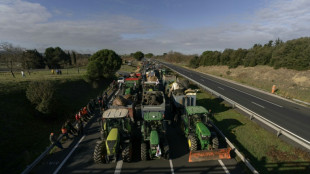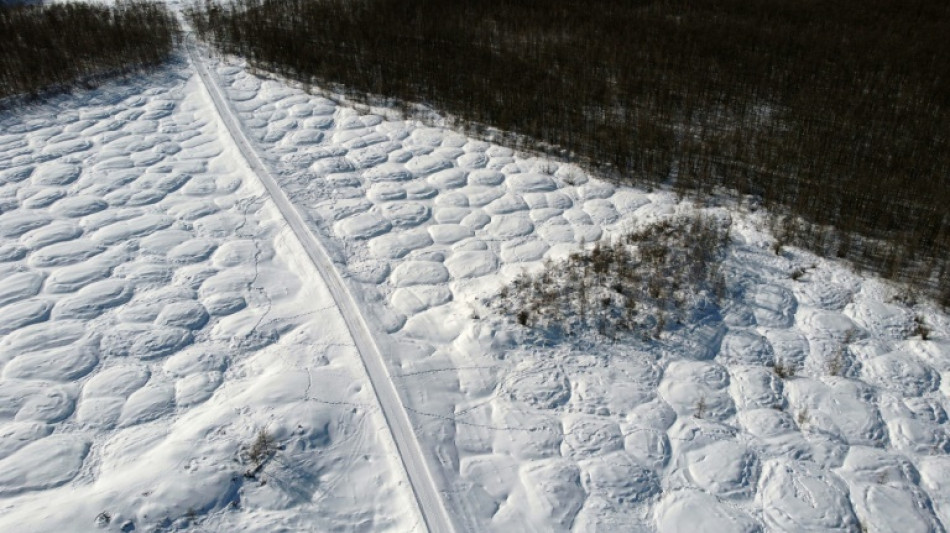
-
 Trump says comedian Colbert should be 'put to sleep'
Trump says comedian Colbert should be 'put to sleep'
-
Mahrez leads Algeria to AFCON cruise against Sudan

-
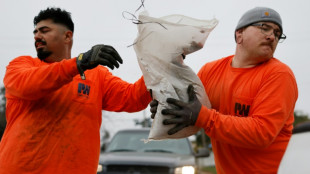 Southern California braces for devastating Christmas storm
Southern California braces for devastating Christmas storm
-
Amorim wants Man Utd players to cover 'irreplaceable' Fernandes

-
 First Bond game in a decade hit by two-month delay
First Bond game in a decade hit by two-month delay
-
Brazil's imprisoned Bolsonaro hospitalized ahead of surgery

-
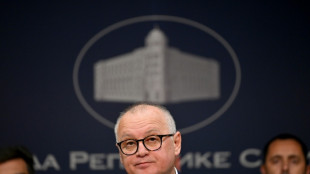 Serbia court drops case against ex-minister over train station disaster
Serbia court drops case against ex-minister over train station disaster
-
Investors watching for Santa rally in thin pre-Christmas trade
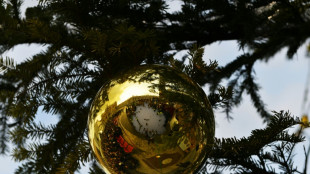
-
 David Sacks: Trump's AI power broker
David Sacks: Trump's AI power broker
-
Delap and Estevao in line for Chelsea return against Aston Villa

-
 Why metal prices are soaring to record highs
Why metal prices are soaring to record highs
-
Stocks tepid in thin pre-Christmas trade
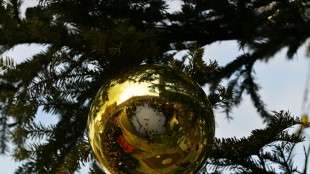
-
 UN experts slam US blockade on Venezuela
UN experts slam US blockade on Venezuela
-
Bethlehem celebrates first festive Christmas since Gaza war

-
 Set-piece weakness costing Liverpool dear, says Slot
Set-piece weakness costing Liverpool dear, says Slot
-
Two police killed in explosion in Moscow
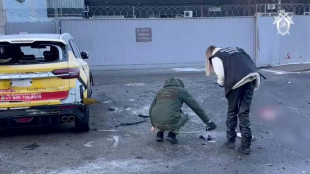
-
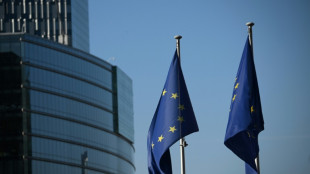 EU 'strongly condemns' US sanctions against five Europeans
EU 'strongly condemns' US sanctions against five Europeans
-
Arsenal's Kepa Arrizabalaga eager for more League Cup heroics against Che;sea

-
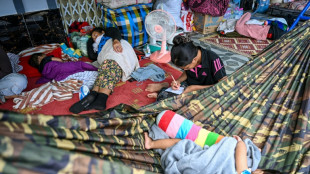 Thailand-Cambodia border talks proceed after venue row
Thailand-Cambodia border talks proceed after venue row
-
Kosovo, Serbia 'need to normalise' relations: Kosovo PM to AFP
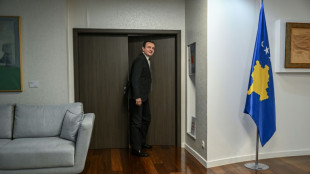
-
 Newcastle boss Howe takes no comfort from recent Man Utd record
Newcastle boss Howe takes no comfort from recent Man Utd record
-
Frank warns squad to be 'grown-up' as Spurs players get Christmas Day off

-
 Rome pushes Meta to allow other AIs on WhatsApp
Rome pushes Meta to allow other AIs on WhatsApp
-
Black box recovered from Libyan general's crashed plane

-
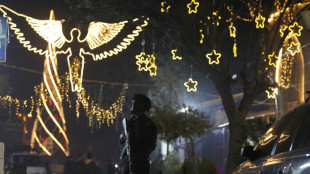 Festive lights, security tight for Christmas in Damascus
Festive lights, security tight for Christmas in Damascus
-
Zelensky reveals US-Ukraine plan to end Russian war, key questions remain
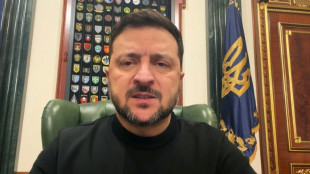
-
 El Salvador defends mega-prison key to Trump deportations
El Salvador defends mega-prison key to Trump deportations
-
Stranger Things set for final bow: five things to know

-
 Grief, trauma weigh on survivors of catastrophic Hong Kong fire
Grief, trauma weigh on survivors of catastrophic Hong Kong fire
-
Asian markets mixed after US growth data fuels Wall St record

-
 Stokes says England player welfare his main priority
Stokes says England player welfare his main priority
-
Australia's Lyon determined to bounce back after surgery

-
 Stokes says England players' welfare his main priority
Stokes says England players' welfare his main priority
-
North Korean POWs in Ukraine seeking 'new life' in South

-
 Japanese golf star 'Jumbo' Ozaki dies aged 78
Japanese golf star 'Jumbo' Ozaki dies aged 78
-
Johnson, Castle shine as Spurs rout Thunder

-
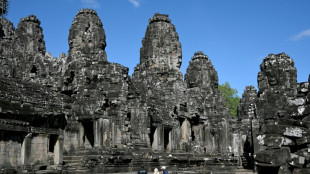 Thai border clashes hit tourism at Cambodia's Angkor temples
Thai border clashes hit tourism at Cambodia's Angkor temples
-
From predator to plate: Japan bear crisis sparks culinary craze
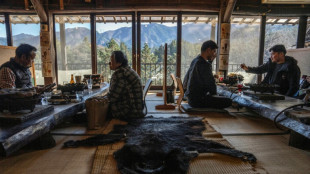
-
 Asian markets mostly up after US growth fuels Wall St record
Asian markets mostly up after US growth fuels Wall St record
-
'Happy milestone': Pakistan's historic brewery cheers export licence

-
 Chevron: the only foreign oil company left in Venezuela
Chevron: the only foreign oil company left in Venezuela
-
US denies visas to EU ex-commissioner, four others over tech rules

-
 SMX Is Being Valued By Monetizing Certainty, Not Sustainability Narratives
SMX Is Being Valued By Monetizing Certainty, Not Sustainability Narratives
-
SMX Is Earning Validation, and Valuation, Through Industrial Proof, Not Promises

-
 SMX's Valuation Is Anchored in Fixing a Structural Supply-Chain Failure Markets Learned to Ignore
SMX's Valuation Is Anchored in Fixing a Structural Supply-Chain Failure Markets Learned to Ignore
-
2026 Payer IT Outsourcing Outlook: Outcome-Based Managed Services, Production-Grade GenAI Governance, and Vendor-Risk Enforcement

-
 Gold's Quiet Molecular-Level Reckoning Is Happening Outside the Spotlight
Gold's Quiet Molecular-Level Reckoning Is Happening Outside the Spotlight
-
SMX Is Transitioning From Single Deployments to Supply-Chain Infrastructure

-
 Each SMX Partnership Opens a Market, the Portfolio Multiplies the Value
Each SMX Partnership Opens a Market, the Portfolio Multiplies the Value
-
CORRECTION: Nextech3D.ai Provides Shareholder Update on Krafty Labs Acquisition and Announces $321,917 CEO Investment


Thawing permafrost dots Siberia with rash of mounds
In the vast white expanse around Churapcha in eastern Siberia, the ever more rapid thaw of the permafrost is changing the landscape, cracking up houses and releasing greenhouse gases.
A growing number of little mounds are appearing across the region of Yakutia in the Russian Far East.
Known as "bylars" in the Yakut language, the tiny hillocks are no more than a metre high and have an almost regular polygonal shape.
"The peaks of these formations are stable. It is the space between the mounds that is sinking," said Nikita Tananayev, director of the climate laboratory at the Federal Northeastern University in the regional capital Yakutsk.
"With climate change, the ice is melting faster," he told AFP.
The mounds' distinctive shape is due to the fact that the underground ice that is melting is shaped in polygons.
Permafrost is a layer of soil that is never supposed to thaw and covers around 65 percent of Russia's territory.
- Record mild weather -
The distinctive mounds have even been appearing in urban areas in Yakutia.
In the town of Churapcha, around 135 kilometres from Yakutsk, the land Innokenty Poselsky bought last year to build a house has around 20 mounds.
"About 40 years ago, there was an airstrip here and the land used to be quite flat," the 34-year-old said.
"Over the last four decades, the landscape has become pockmarked. It's like that everywhere here," he said.
Poselsky said he has only managed to level around half of the land. His house is built on piles deeply embedded in the permafrost -- like all the buildings in the region.
The thaw is having a visible effect on residential and commercial property -- the walls of some buildings are subsiding and cracking.
"Over 40 percent" of buildings on permafrost are affected by thawing, Mikhail Kuznetsov, head of the federal agency for development of the Russian Far East, said last year.
Tananayev said rising temperatures were to blame.
Temperatures have gone up by "1.5 degrees Celsius in the last 30 years" in Yakutia and "up to two degrees in some areas", he added.
The numbers chime with data from global observatories using ice cores that show the last two years -- 2023 and 2024 -- were the hottest on Earth for more than 120,000 years.
Global warming is largely caused by fossil fuel consumption and Russia is the world's fifth biggest global emitter of greenhouse gases.
- Viruses and bacteria -
"A difference of one or two degrees Celsius, even if the temperatures are still negative, is very big in scientific terms because the permafrost does not freeze as deeply as usual," said Alexander Makarov, director of the Arctic and Antarctic Research Institute in Saint Petersburg.
The Institute is investigating the permafrost at 78 observation points in 12 regions of Russia and is hoping to increase the number to 140 points.
The thaw is also releasing more carbon dioxide and methane -- two greenhouse gases that were preserved in the ice for thousands of years.
That creates a vicious circle as the gases make climate change worse and in turn lead to more permafrost thaw.
Apart from effects on the climate, scientists warn that the thawing permafrost also has a health risk as it can release bacteria and viruses.
In 2016, a child died in Siberia because of anthrax -- which had not been seen in the region for 75 years.
Scientists believe it came from a reindeer that died of anthrax and was preserved in ice for decades.
Once released, the bacterium, which can stay in the ice for more than 100 years, had infected a reindeer herd.
A.Malone--AMWN


